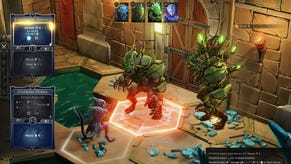Nintendo to target Saga magazine readership
Following the announcement that Nintendo is planning to advertise in Saga magazine, editor Emma Soames has told GamesIndustry.biz that there is a growing appetite for videogames amongst older people.
Following the announcement that Nintendo is planning to advertise in Saga magazine, editor Emma Soames has told GamesIndustry.biz that there is a growing appetite for videogames amongst older people.
"Our readers demonstrate an enormous appetite for games, both online and offline," Soames said.
"I think it's one of the first things that happens when people become computer literate - they get the Solitaire game, and then no doubt they go on to greater things. For people in this age group who get into computers, games are a major part of their online diet."
The Saga Group specialises in offering a wide range of products, including holidays and financial services, to people over the age of 50. Saga magazine has a monthly circulation of 1.2 million and a readership of more than 2 million.
The Saga advertising campaign will focus on Professor Kawashima's Brain Training, a Nintendo DS title that tasks players with completing a series of mathematical, cognitive and language-based tests. Players are rated according to speed and accuracy and are given a "brain age", with the aim being to reduce your brain's age to 20 through daily training.
"I haven't seen this game yet, but from what I've read about it, it sounds like it could be terrific for [our readers]," Soames told GamesIndustry.biz, adding that 'Use it or Lose it' - Saga's puzzle page - is one of the most popular sections of the magazine.
"We've done several pieces in the magazine recently drawing on medical research which shows it is exactly that - if you don't use it, you lose it. [Playing games] is one of the ways to stay mentally sharp and alert."
"I think the amazing wave of passion for Sudoku, for example, is not fed by one age group particularly, it's a universal thing; that's what's great about games - they're not a ghetto for any particular age."
According to Soames, Saga magazine is "the natural home for a campaign targeting an older audience like this."
"It's a very exciting market and as older people become more and more computer literate, and they've got a little bit more time on their hands, they just love it; there's a real appetite for it. There's a real awareness out there and I think people are hungry for new experiences - they're up for it."
Soames did concede that not all videogames will appeal to older people: "I think obviously there are some that are very driven towards young boys, and I don't think older people would like them. But I think that as an industry [games have] got massive potential in this age group."
When asked if there was a chance that videogame reviews might appear in Saga magazine in the future, Soames replied: "Yes, definitely."
"We do a lot of music and cinema and DVDs, and I think we should do videogames as well. We're spring cleaning the magazine in a couple of months and I think there's another element to bring in."
More than 1.4 million copies of Professor Kawashima's Brain Training have been sold in Japan since the game launched there last May. According to Nintendo, sales have peaked during unconventional periods - such as Respect for Senior Citizens Day - and research has shown that two thirds of Brain Training purchasers are aged 25 and upwards.
"The release of Professor Kawashima's Brain Training in Japan shows that there are a huge number of people outside the traditional, stereotypical 16-34 year old male gamer, who enjoy playing games," A Nintendo spokesperson told GamesIndustry.biz.
" Brain Training is a fun and easily accessible title for anyone of any age and our marketing plans reflect the broad appeal and variety our 'New Ways To Play' titles have."








